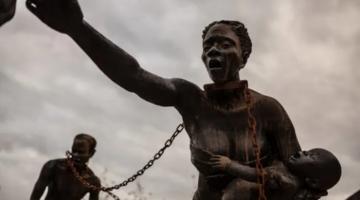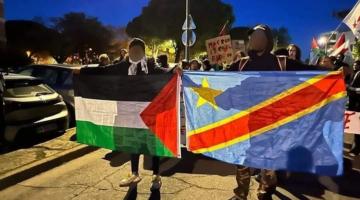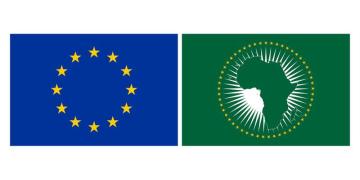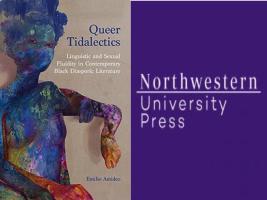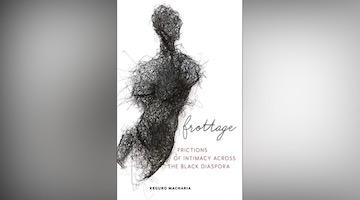The book seeks to unmake the idea that Black people in Canada occupy some “special” place in diaspora.
“Liberal democratic societies are fundamentally in opposition to BlackLife fully thriving as a form of life.”
In this series, we ask acclaimed authors to answer five questions about their book. This week’s featured authors are Rinaldo Walcottand Idil Abdillahi. They are authors of the book, BlackLife: Post-BLM and the Struggle for Freedom. Rinaldo Walcott was kind enough to participate in the interview below.
Roberto Sirvent: How can your book help BAR readers understand the current political and social climate?
Rinaldo Walcott: This book hopefully puts some ideas into the world that aids to participate in ongoing conversations about what hampers potential black freedoms. We see our ideas as in conversation with others and subject to revision of those dialogues. In terms of helping communities to think critically about the ways in which BlackLife is apprehended in contemporary urban communities in Canada we see our ideas as coming from participation in those communities and thus this book is a reflection of those conditions. While we focus on Toronto it will become easily visible to anyone familiar with contemporary life in the west that BlackLife in Canada is not radically different. The book seeks to unmake the idea that in the context of Canadian multiculturalism that Black people in Canada occupy some “special” place in diaspora. Instead we hope that what we show is that BlackLife in Canada is in concert with BlackLife globally. And finally, we attempt to demonstrate in snapchat form that liberal democratic societies are fundamentally in opposition to BlackLife fully thriving as a form of life. And yet we are not pessimistic, because we also recognize that Black people continue to make lives that are countered to those on offer to us from liberal democratic nation-states.
What do you hope activists and community organizers will take away from reading your book?
If self-identified activists and community organizers take anything from this book it should be that we are in this together and by that we mean that the sites of struggle are multiple and that some Black folks in the academy see it as a site of struggle. It is our contention that ideas are central to successful struggle and that the university has attempted to monopolized the production of ideas. Thus, given that we see ourselves are members of communities of struggle we understand our struggle in the university as part of a larger convention in which unmaking Eurocentric and white supremacist knowledges (even in their mild forms) is central to what happens on the streets. We refuse the assumption that the university is not the street too.
We know readers will learn a lot from your book, but what do you hope readers will un-learn? In other words, is there a particular ideology you’re hoping to dismantle?
We hope that readers will unlearn two things: first that liberalism and inclusion will never be venues for Black freedom; and, second, that the modern nations of the west are also antithetical to Black freedom. Those two things are deeply interwoven and those two things are the foundation upon which we hope our struggles will proceed. By this we mean that we hope our struggles work for the desolution of the modern nation-state born out of the global subjection of Black peoples. We refuse the idea that the nation-state can be made “right” and thus make BlackLife fully livable on its own terms.
Who are the intellectual heroes that inspire your work?
Frantz Fanon’s insistence that we always question and that a new humanism is possible underwrites everything we do. Sylvia Wynter’s philosophical instruction to understand the world we have in very particular terms, especially that its present orientations are invented and can be reinvention is the basis of our political interventions and thus grounds our idea of being in conversation and dialogue with others invested in re-inventing BlackLife. And of course, her extension of Fanon’s ideas dovetail for us in the corpus of our thinking and our larger intellectual project to make the world anew again. Dionne Brand’s poetics of Black life, aesthetics and politics and her uncompromising left politics – Marxist in fact, is a model of political and artistic commitment that inspires us everyday. We are nothing without her insights and her inventories of BlackLife and more. And finally Stuart Hall, Paul Gilroy, and Hazel Carby are three Black Brits whose thinking and writing on Black diasporic cultures, politics and ideas have been foundational to all that we do on Black Canada.
In what way does your book help us imagine new worlds?
We hope that the book is in dialogue with those willing to risk identity, nation, and the various genres of our being to imagine new ways to be in the world. We see this book as thinking with and alongside those who want a different world and who believe that a different world is possible and achievable. In this way, in terms of keeping with our insistence that we are in dialogue with others, we see our work as part of the conversation about making new worlds. We intend to be a part of the building and making rather than occupy the position of the vanguard.
Roberto Sirvent is Professor of Political and Social Ethics at Hope International University in Fullerton, CA. He also serves as the Outreach and Mentoring Coordinator for the Political Theology Network. He is co-author, with fellow BAR contributor Danny Haiphong, of the new book, American Exceptionalism and American Innocence: A People’s History of Fake News—From the Revolutionary War to the War on Terror.
COMMENTS?
Please join the conversation on Black Agenda Report's Facebook page at http://facebook.com/blackagendareport
Or, you can comment by emailing us at comments@blackagendareport.com

